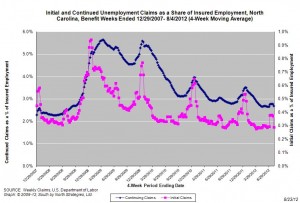28.08.2012
Policy Points
Economic policy reports, blog postings, and media stories of interest:
28.08.2012
Policy Points
Writing for Project Syndicate, economist Simon Johnson asks a good question; namely, “why do US fiscal conservatives care so little about government debt, relative to their counterparts in other countries?” From the article …
And Americans have shifted greatly toward political philosophies – on the right and on the left – that regard public debt merely as a distraction. Or, as former vice president Dick Cheney put it, “Reagan taught us that deficits do not matter” – meaning that Ronald Reagan cut taxes, ran bigger deficits, and did not suffer any adverse political consequences.
…
[Rep. Paul] Ryan and members of the Tea Party wing of the Republican Party undoubtedly want to cut the size of the federal government, and they have articulated plans to do this over several decades. But, in the near term, what they promise is primarily tax cuts: their entire practical program is front-loaded in that direction. The calculation is that this will prove politically popular (probably true) while making it easier to implement spending cuts down the road (less obvious). The vulnerability caused by higher public debt over the next few decades is simply ignored.
27.08.2012
Policy Points
Economic policy reports, blog postings, and media stories of interest:
27.08.2012
Policy Points
From the North Carolina Budget and Tax Center’s “back to school” guide to school funding in the Tar Heel State …
As for the number of jobs in North Carolina’s schools, there are thousands fewer now than before the Great Recession, and the loss of school jobs continues as budget cuts deepen and persist. As of FY2011-12, there were 11,833 fewer school personnel in North Carolina than there were in the last school year before the Great Recession (FY2007-08). Claims made in this year’s legislative session that the FY2011-12 state budget added 2,000 teacher jobs didn’t hold up under scrutiny, and it appears likely that misunderstanding and misinformation about school employment and its direct relationship to budget decisions will continue to thrive through this election season and beyond.
27.08.2012
Policy Points
For the benefit week ending on August 4, 2012, some 10,977 North Carolinians filed initial claims for state unemployment insurance benefits and 100,291 individuals applied for state-funded continuing benefits. Compared to the prior week, there were more initial and fewer continuing claims. These figures come from data released by the U.S. Department of Labor.
Averaging new and continuing claims over a four-week period — a process that helps adjust for seasonal fluctuations and better illustrates trends — shows that an average of 10,856 initial claims were filed over the previous four weeks, along with an average of 100,857 continuing claims. Compared to the previous four-week period, the average number of initial claims was lower, as was the average number of continuing claims.
One year ago, the four-week average for initial claims stood at 10,863, and the four-week average of continuing claims equaled 109,981.
In recent weeks covered employment has increased and now exceeds the level recorded a year ago (3.77 million versus 3.71 million). Nevertheless, there are still fewer covered workers than there were in January 2008, which means that payrolls are smaller today than they were more than 4.5 years ago.
The graph shows the changes in unemployment insurance claims measured as a share of covered employment in North Carolina since the recession’s start in December 2007. 
Both new and continuing claims appear to have peaked for this cycle, and the four-week averages of new and continuing claims have fallen considerably. Yet continuing claims remain at an elevated level, which suggests that unemployed individuals are finding it difficult to find new positions.


 Email Sign-Up
Email Sign-Up RSS Feed
RSS Feed